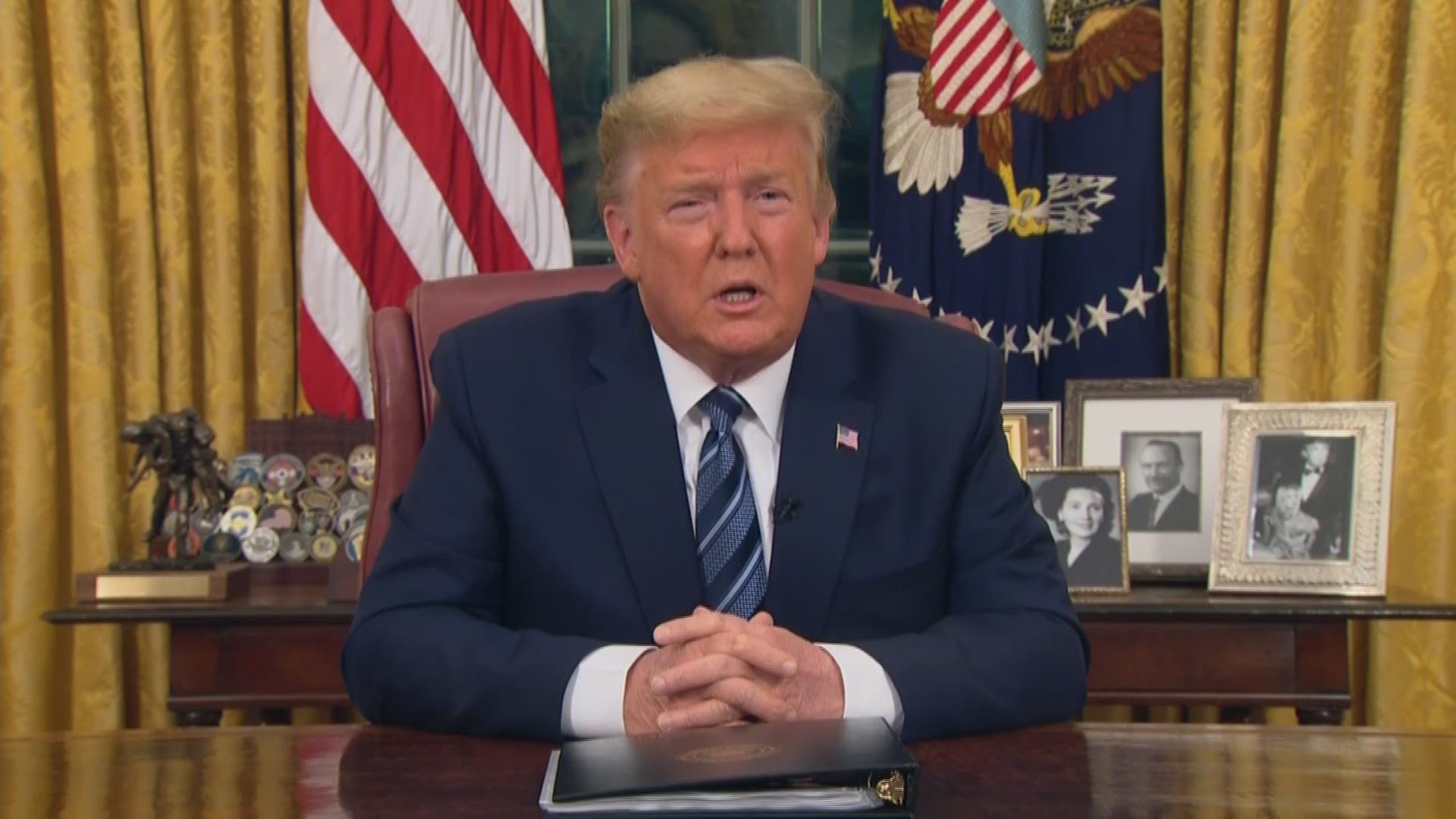President Donald Trump misstated his administration's intended actions on the coronavirus pandemic when he spoke to the nation in his prime-time address Wednesday. He also appeared to hold out false hope of an imminent treatment for the spreading disease.
TRUMP: “We will be suspending all travel from Europe, except the United Kingdom, for the next 30 days.”
THE FACTS: That's not exactly his plan.
First, the restriction does not apply to legal permanent residents of the U.S. or their families when they are returning from Europe. It also does not apply to U.S. citizens coming back from Europe, as Trump acknowledged.
As well, it apparently does not apply to Ireland, Romania, Croatia, Ukraine and several other European states. The proclamation released by the White House says the travel ban will affect the 26 European states in what's known as the Schengen Area. That's most of Europe, but not “all.”
RELATED: State Department advises all US citizens to 'reconsider travel abroad' due to virus pandemic
___
TRUMP: "These prohibitions will not only apply to the tremendous amount of trade and cargo, but various other things as we get approval."
THE FACT: That is also wrong. The White House quickly clarified that the restriction on movement from Europe "only applies to human beings, not goods and cargo.”
___
TRUMP: “We are cutting massive amounts of red tape to make antiviral therapies available in record time. These treatments will significantly reduce the impact and reach of the virus.”
THE FACTS: People suffering from COVID-19 or those who get it in the current outbreak should not expect those therapies to be available to them. Dr. Anthony Fauci of the National Institutes of Health told a congressional committee Wednesday that while antivirals are being tested, “we don’t know if it works. I don’t want to promise anything.”
An antiviral is a medicine that specifically attacks a virus to hasten recovery. An experimental drug named remdesivir, which was being developed to fight Ebola, is being tested in COVID-19 patients in the U.S. and abroad. There also are studies underway using combinations of some HIV-attacking drugs.
---
It's important in these times to separate facts from fear.
The majority of people who have coronavirus will get better without any long-term effects, according to an Oregon doctor. About 80% of cases tend to be mild. In these cases, symptoms diminish over five to seven days, although people are still capable of transmitting the disease. But there are many people with a higher risk of having a more severe disease if they are diagnosed with coronavirus, including those with heart disease, diabetes, asthma and other vascular disease problems. Also, most children who get it have mild symptoms.
Associated Press writers Jill Colvin, Lauran Neergaard and Zeke Miller contributed to this report. TEGNA staff also contributed.

